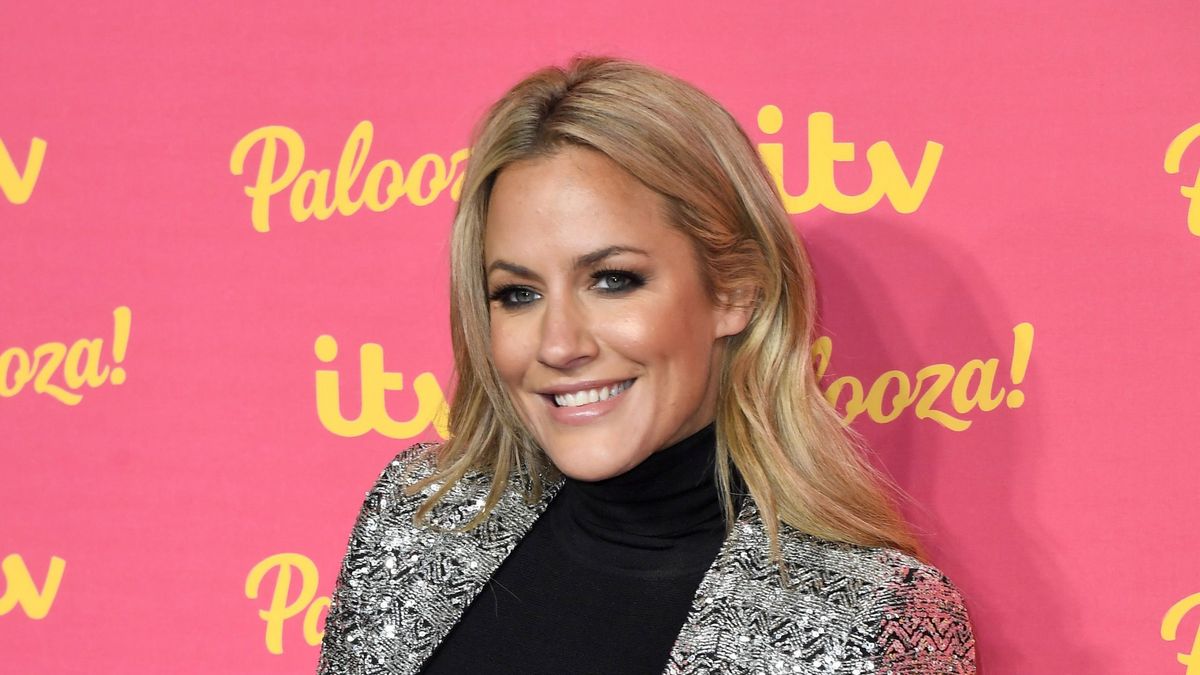British media under fresh scrutiny after death of Caroline Flack

A few minutes every morning is all you need.
Stay up to date on the world's Headlines and Human Stories. It's fun, it's factual, it's fluff-free.
On Saturday, February 15, English television personality Caroline Flack hung herself in the midst of a personal scandal that had become regular fodder for the British press.
In the week since her suicide, much attention has been given to how British tabloids and paparazzi cover celebrities and the ways in which they often hound the subjects of their stories.
Despite their massive popularity in the country, British tabloids have generated scandals in recent decades, including the 2011 phone hacking scandal that resulted in one newspaper being closed down.
The press’ relationship with the British royal family has also been a point of contention, from the death of Princess Diana to the announced departure of Prince Harry and his wife, Meghan Markle.
The British press’ coverage of Caroline Flack
Caroline Flack was a well-known British television personality who hosted the popular “Love Island” reality TV show. Her suicide followed news of a domestic abuse scandal in which she was accused of attacking her boyfriend and hitting him with a lamp. That story was covered heavily by the UK’s tabloid press, including the Daily Mail and The Sun.
Just hours after Flack’s death was announced, The Sun removed a story it had recently posted about the embattled celebrity. The story (which can still be found in web archives) detailed a mocking Valentine’s Day card that referenced the alleged lamp attack.
Following Flack’s death, British media has come under scrutiny for its coverage and the way it harasses celebrities and other public figures. Some have blamed the mocking coverage of Flack’s troubles for her decision to take her life. There have been reports of journalists facing online attacks and fearing reprisals amidst the wave of public backlash.
The backlash has led to petitions calling for stricter rules on the press and a government inquiry into the media. One of the petitions has accumulated over 750,000 signatures, while the other is close to 250,000 signatures.
The exit of Harry and Meghan
This media backlash comes in the wake of Prince Harry and his wife, Meghan, the former Duke and Duchess of Sussex, respectively, choosing to leave the country and give up their titles. The reason for this dramatic decision was in part blamed on “media attention.”
Observers noted that, as the first black member of the royal family, Meghan faced especially unfriendly media coverage. Overt racism has been suggested as one of the leading causes of that negative coverage.
Last month, after the royals announced their departure, a BuzzFeed article about media coverage of Meghan went viral. The article showcased the vastly different tone of Meghan’s coverage compared to that of Kate Middleton, the wife of Harry’s brother, Prince William. One example showed the Daily Mail fawning over a pregnant Kate while criticizing Meghan as vain for holding her “baby bump.”
The British media versus the royal family
The British media’s relationship with the royal family has been fraught for decades. The relentless pursuit of Diana, Princess of Wales by the paparazzi has been blamed for her death. In the words of Time, the British paparazzi were the “unspoken villain" in the eulogies of the deceased Princess Di.
Diana, the mother of William and Harry, received intense attention as the wife of Charles, Prince of Wales (who is to succeed Queen Elizabeth II to the throne), and even greater attention after she divorced him. An estimated 750 million people around the world watched the wedding of Charles and Diana.
Diana soon became “the most photographed person in the world” with photos of her drawing as much as US$656,000.
On the morning of her death, on August 31, 1997, she and her companion, Dodi al-Fayed, as well as their driver, were killed in a car crash in a tunnel in Paris. They had been trying to elude the paparazzi at the time of the crash. Diana’s September 6 televised funeral reportedly drew 2.5 billion viewers.
The popularity of British tabloids
Despite the criticism British tabloids have received, they continue to be among the best-selling newspapers in the country. Of the top 10 highest selling papers in the UK, six are in the tabloid format. The Sun and the Daily Mail, along with their “On Sunday” weekly formats, take up four of the top five spots.
The Sun on Sunday was created to replace the now defunct News of the World. That publication was shuttered after the infamous phone hacking scandal in which it was discovered that the paper’s reporters and editors, including Piers Morgan, were involved in hacking the phones of celebrities as well as Sara Payne, the mother of a girl who was abducted and murdered in July 2000.
Australian Billionaire Rupert Murdoch, the founder and former CEO of the US cable channel Fox News, is the owner of The Sun.
[article_ad]




Comments ()